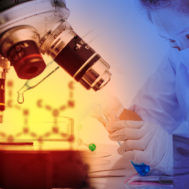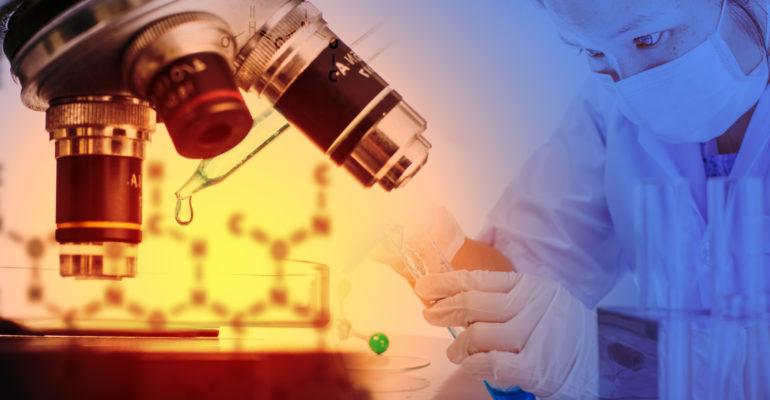 In a report entitled “Bold Goals for U.S. Biotechnology and Biomanufacturing,” the White House recently announced several biotech-related “bold goals” to advance the environmental, agricultural, economic, health, and science fields. The publication follows President Biden’s Sept. 12, 2022 Executive Order on “Advancing Biotechnology and Biomanufacturing Innovation for a Sustainable, Safe, and Secure American Bioeconomy.” The Executive Order set forth the White House policy to “bolster and coordinate federal investment in key research and development (R&D) areas of biotechnology and biomanufacturing in order to further societal goals” and to “foster a biological data ecosystem that advances biotechnology and biomanufacturing innovation, while adhering to principles of security, privacy, and responsible conduct of research.”
In a report entitled “Bold Goals for U.S. Biotechnology and Biomanufacturing,” the White House recently announced several biotech-related “bold goals” to advance the environmental, agricultural, economic, health, and science fields. The publication follows President Biden’s Sept. 12, 2022 Executive Order on “Advancing Biotechnology and Biomanufacturing Innovation for a Sustainable, Safe, and Secure American Bioeconomy.” The Executive Order set forth the White House policy to “bolster and coordinate federal investment in key research and development (R&D) areas of biotechnology and biomanufacturing in order to further societal goals” and to “foster a biological data ecosystem that advances biotechnology and biomanufacturing innovation, while adhering to principles of security, privacy, and responsible conduct of research.”
The new report from the Biden Administration states that “[i]mprovements in human health outcomes have benefited from advances in biotechnology and biomanufacturing over the last two centuries, from the discovery of genetics and the development of early vaccines to modern robotic limbs and engineered cell therapy.” Further, “[t]o prevail in the fight against disease and strive toward healthy living, several emerging fields in biotechnology and biomanufacturing need to be strengthened and developed further. In taking these key steps, the U.S. government, in collaboration with the private sector, can advance areas throughout the full health continuum—from prevention to diagnosis and monitoring, to more efficient therapeutic manufacturing, to therapy and ultimately healthy survivorship.”
The report includes a section on “Biotechnology and Biomanufacturing R&D to Further Human Health,” authored by the U.S. Department of Health and Human Services. Of particular relevance for biologics and biosimilar research, development, and manufacturing, the report describes ten “aspirational bold goals” to advance human health, under the themes “Accessible Health Monitoring,” “Precision Multi-Omic Medicine,” “Biomanufacturing of Cell-Based Therapies,” “AI-Driven Bioproduction of Therapeutics,” and “Advanced Techniques in Gene Editing.”
The ten goals called out in this section include:
- Identifying at least ten next-generation bio-indicators of health that can be monitored as part of preventative medicine practice;
- Developing affordable home diagnostic assay kits to decrease disparities in health outcomes;
- Collecting multi-omic measures from diverse populations to identify which measures are most relevant to the diagnosis and management of diseases with high incidence and impact;
- Developing molecular classifications for the diagnosis, prevention, and treatment of the leading causes of disease-related mortality;
- Expanding the technologies used to develop cell-based therapies to achieve at least 75% cell viability in patients;
- Increasing the manufacturing scale of cell-based therapies to expand access, decrease health inequities, and decrease the manufacturing cost of cell-based therapies;
- Addressing barriers in autonomous production and bioproduction of existing biotherapeutics to increase manufacturing speed of ten commonly prescribed therapeutics;
- Integrating AI and machine learning to design novel biotherapeutics to increase the speed of novel drug discovery and production;
- Further developing gene-editing systems for clinical use to enable cures for disease with genetic causes; and
- Strengthening the biomanufacturing ecosystem to produce large doses of therapeutic gene-editing systems.
The report also describes opportunities for public-private collaboration to achieve these goals, including existing public-private partnerships. One such partnership noted in the report is the Accelerating Medicines Partnership® (AMP®) program, an existing public-private partnership between NIH, FDA, the Foundation for the National Institutes of Health, and multiple public and private organizations, including biotechnology and pharmaceutical companies.

